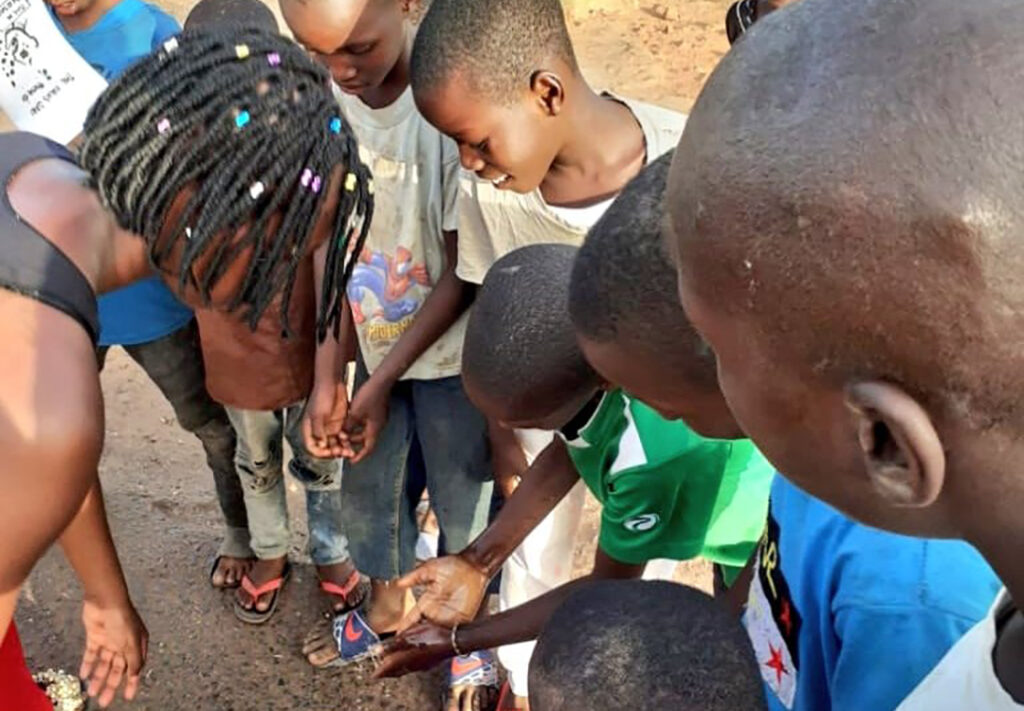ADF STAFF
Residents of The Gambia are receiving vital support through the U.S. Agency for International Development (USAID) to help educate themselves and stem the spread of COVID-19.
USAID’s most recent commitment of $310,000 is intended to help the country slow the spread of the novel coronavirus by raising public awareness of its risks and the ways to avoid spreading it. It will drive its message through radio and television announcements and an online fact-checking project to counter disinformation about the virus.
“Many people in The Gambia do not believe the COVID-19 is real,” said Alhasan Bah, founder of Balal Public Library in the community of Soma. “There have been rumors that the COVID-19 does not infect blacks — that it only catches whites — which can be very dangerous when it hits our communities.”
Balal Public Library, founded in 2012, is one of several organizations in The Gambia working with USAID and the U.S. Embassy to inform the public about COVID-19.
The embassy also is working with Prospect for Girls, a nongovernmental organization focusing on women’s health issues, to emphasize the risks COVID-19 poses to women and girls. In addition, the U.S. Department of Defense, with help from USAID, is providing the Municipal Council of Kanifing, just west of Banjul, with $15,000 to support logistic, sanitization and safety needs to respond to COVID-19 in the community.
In all, U.S. COVID-19 financial support to The Gambia is about $3 million, according to embassy officials.
“The United States has always stood by our partners through pandemics and crises,” U.S. Ambassador Richard Carl Paschall said in announcing the new funding. “In the face of COVID-19, the American people are here to help.”
The Balal Public Library serves Soma, a city of 12,000 people about 113 kilometers from the capital, Banjul.
Along with providing residents with books and other resources, the library has been a source of key information about COVID-19 since before the World Health Organization declared it a pandemic, Bah said.
Library members take the message to the streets, visiting marketplaces to educate the public with facts about the virus and how to prevent its spread. They also have launched a weekly radio program to reach residents of the nine communities surrounding Soma.
The process is similar to one the library undertook in 2014 to warn residents about the Ebola virus then spreading in nearby Guinea, Liberia and Sierra Leone.
The COVID-19 funding is part of a long and enduring relationship between the Balal Public Library and the U.S. Embassy.
“Without the U.S. Embassy funding and partnership, our library would have closed by now,” Bah said.

